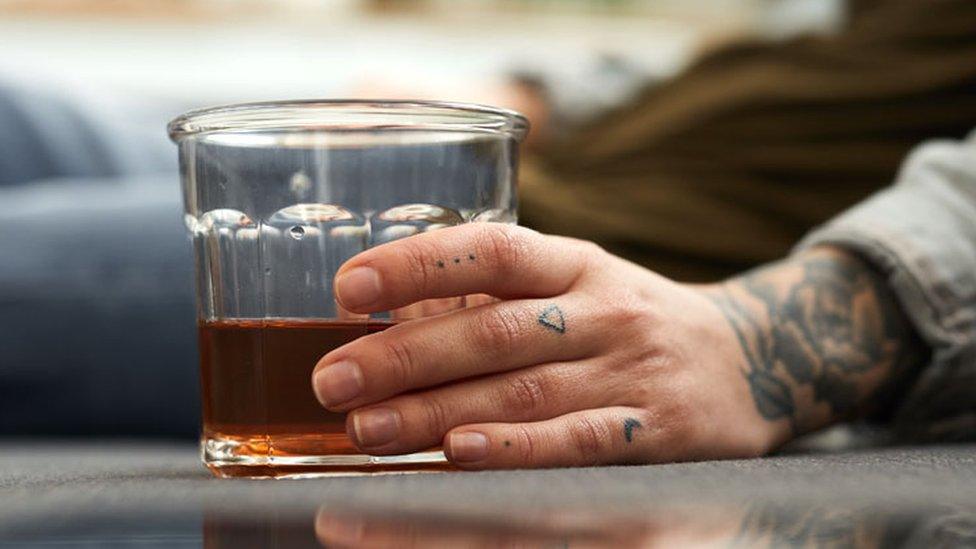'I beat my addiction, but alcoholism killed my son'
- Published
Father who beat addiction watched his son die from alcoholism
Fred Parry credits his 20-year sobriety to the time he spent in Castle Craig, a private rehab clinic in the Scottish Borders.
The 66-year-old says recovering from alcoholism was the best thing that ever happened to him, and is now a cellist, a music teacher, a husband and father.
When his son Adam began battling addiction, Mr Parry sent him to the same clinic in the hope that he would also recover.
But on 6 May, 2021, Adam died in his room after a suspected withdrawal seizure. He was 32.
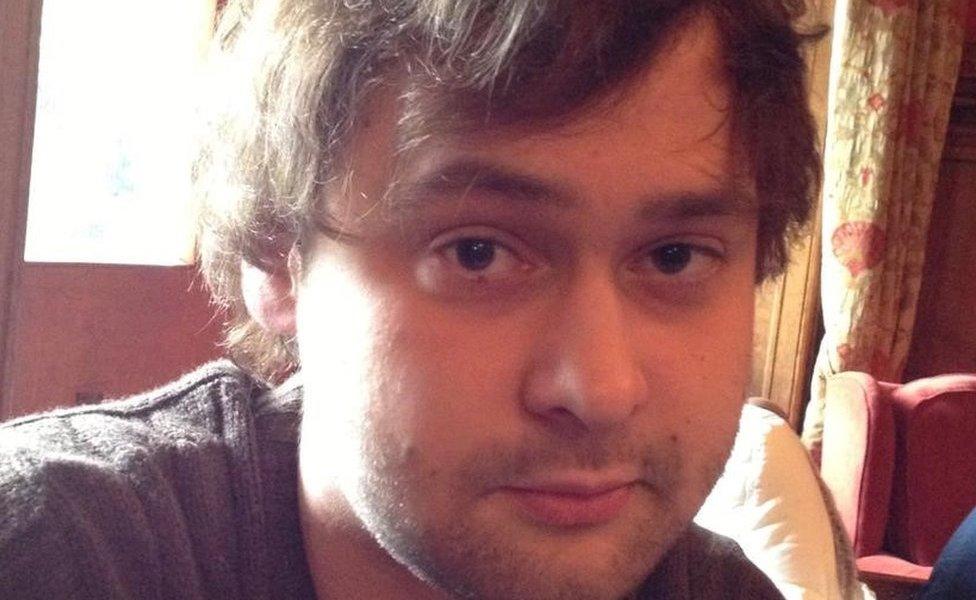
Adam Parry died age 32 after a suspected alcohol-related seizure
"I couldn't get into his room to see him, I had to get the fire brigade to get in," said Mr Parry. "It was horrific, absolutely horrific. It shouldn't have happened.
"Quite often we can get angry with addicts - for families it's torment when they see what it does to a loved one.
"But I also was aware of the torment that Adam was going through, he was tortured but he couldn't find a way out."
Mr Parry, from Glasgow, described Adam as a well-spoken, highly intelligent young man who was always reading two or three books at a time.
"We have this conception of what an alcoholic looks like - Adam didn't present like that," he said.
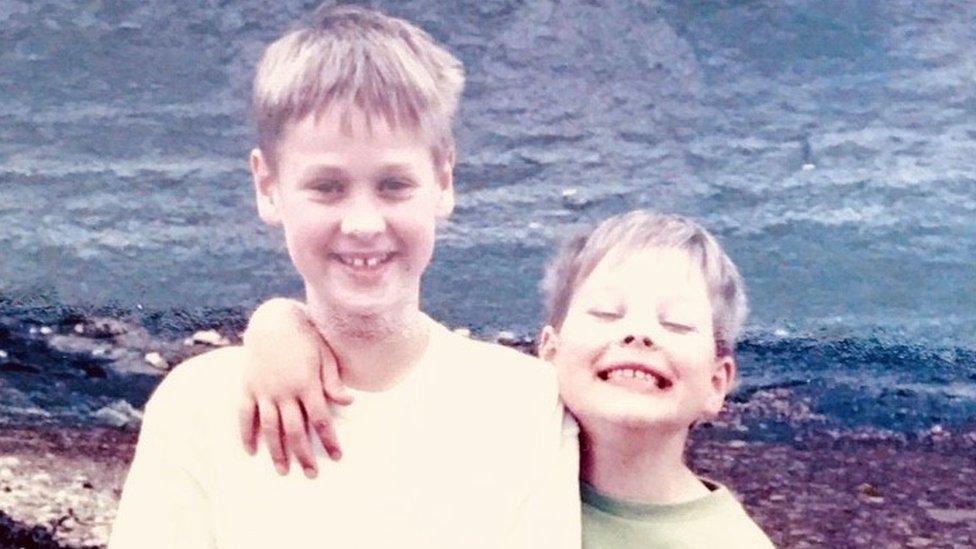
Adam, left, and his younger brother Fraser
His addiction began to take over when he started studying chemistry at the University of St Andrews - he had failed exams which led to him dropping out altogether.
After growing frustrated with Community Alcohol Treatment (CAT) staff, Mr Parry paid £15,000 for Adam to attend rehab at Castle Craig - which he said helped Adam stay sober for about three years.
When Mr Parry attended the service in 2000, he said it was paid for by the NHS and social care.
But in 2017, when Adam was offered a place at the University of Glasgow, his sobriety began to slip.
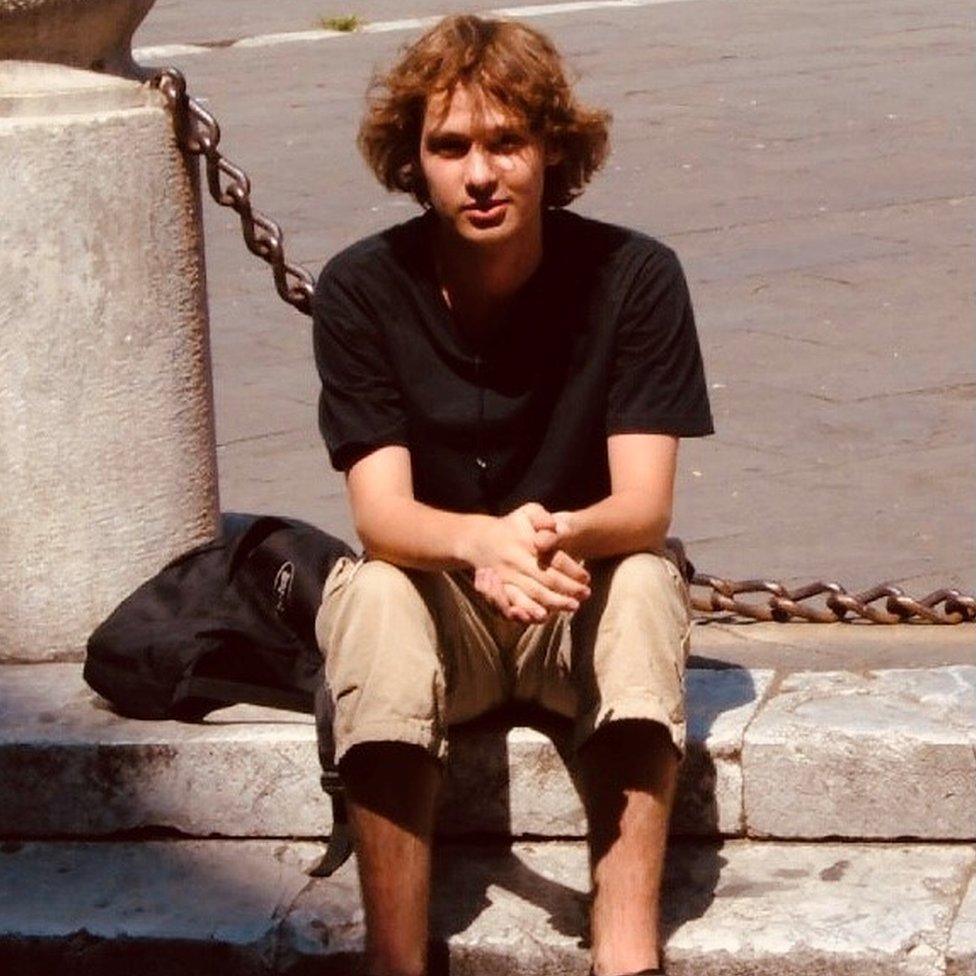
Adam dropped out of the University of St Andrews after his addiction worsened
"Through all this whole period of time we believed Adam had some mental health problems that ran in conjunction with his addiction," said Mr Parry.
"But trying to get those addressed was impossible. Seeing a psychiatrist wasn't going to happen. The help he was offered was very piecemeal, the onus was on him to turn up at a certain place, a certain time.
"It seems that when you're suffering from addiction your life is chaotic, you don't know what time of day it is or what day of the week, yet you're expected to turn up at certain appointments."
'All you can do is lock them up'
Eventually, while unemployed and living with his parents, Adam's drinking became more erratic.
His father said he would spend benefits money on alcohol, then wean himself off when he ran out of money - a process which led to his hospitalisation from alcohol-related seizures.
In the six months before his death he was in hospital six times from seizures.
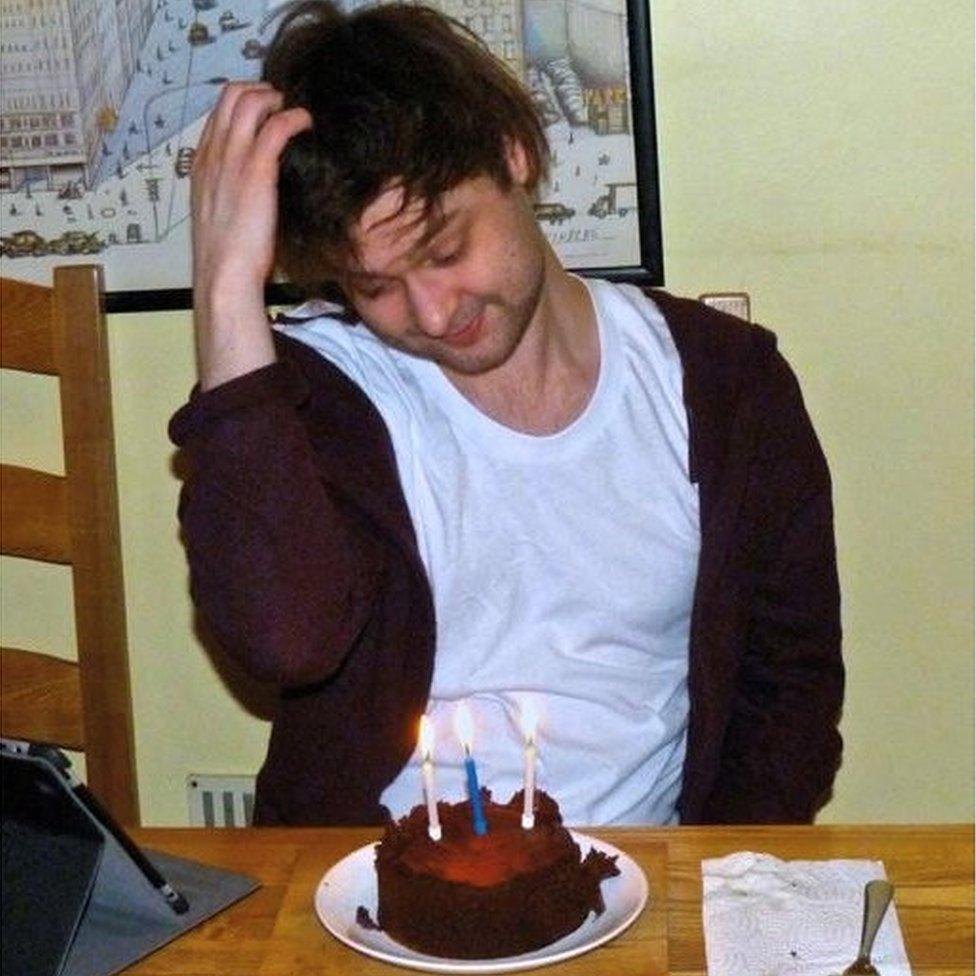
The family wanted to send him back to rehab, but they could not afford it - meanwhile Mr Parry said that often, Adam was too unwell to consent to further treatment as his health deteriorated.
Now, he wants the Scottish government to improve access to addiction treatment services, including residential rehab.
Mr Parry said: "I was told by one of the doctors there's nothing you can do for an alcoholic, all you can do is lock them up and throw the key away - I was told that in front of Adam in the hospital.
"[Rehab] would have been the treatment of choice for Adam. But unfortunately Adam didn't need just six weeks in rehab, he needed a lot longer with a proper structure when he came out of rehab."
Record drug deaths
In August, National Records of Scotland statistics showed that deaths caused by alcohol had risen to their highest level in a decade.
They rose by 17% from the previous year to 1,190 - the highest figure since 2008.
The Scottish Conservatives have proposed a Right to Recovery Bill which would protect the right to addiction treatment in law - which would include residential rehab.
On Friday, the party said a public consultation suggested about 77% of respondents supported the bill.
The party's Shadow Health Secretary Dr Sandesh Gulhane said: "We believe right to recovery is a crucial part of the solution and I'm delighted to see the extremely positive response to it from stakeholders, who recognise it's a common-sense bill drawn up in consultation with experts in the addiction field.
"At the moment, too many people with addiction problems are unable to access the help they need, but this legislation would enshrine in law their right to receive potentially life-saving treatment, including residential rehab."
Drugs Policy Minister Angela Constance said the Scottish government had given £250m over five years to improve access to addition services.
She said: "The Scottish government will give the bill a sympathetic hearing and we look forward to seeing the analysis of the consultation and a draft bill.
"While that bill process is ongoing my focus is on taking action now and delivering new investment to improve services and save lives."
Scottish Labour's drug policy spokeswoman Claire Baker added the party would back any proposals that would save lives.
She added: "There is no one silver bullet that will fix this issue - we need to use every power at our disposal now to deliver the treatment and support needed to help people."
- Published4 February 2022
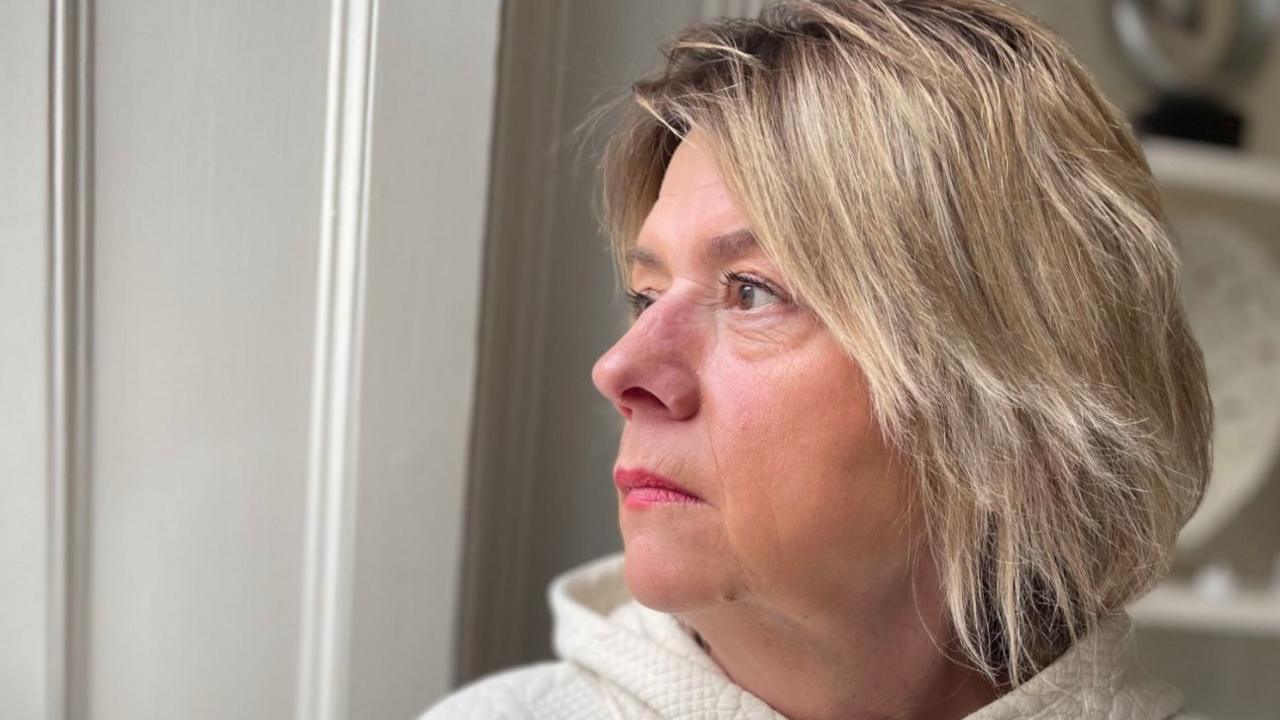
- Published22 February 2022

- Published17 August 2021
